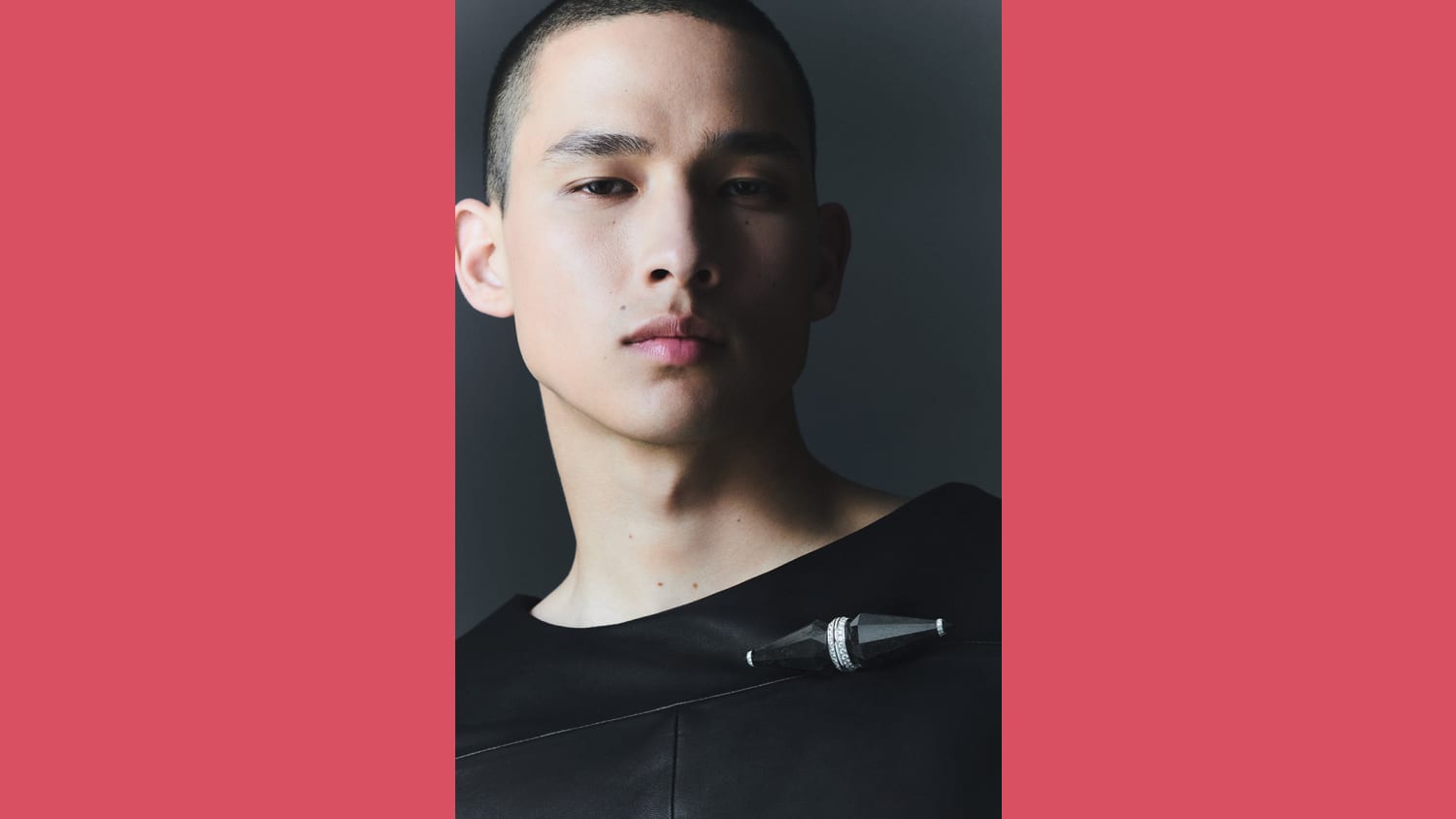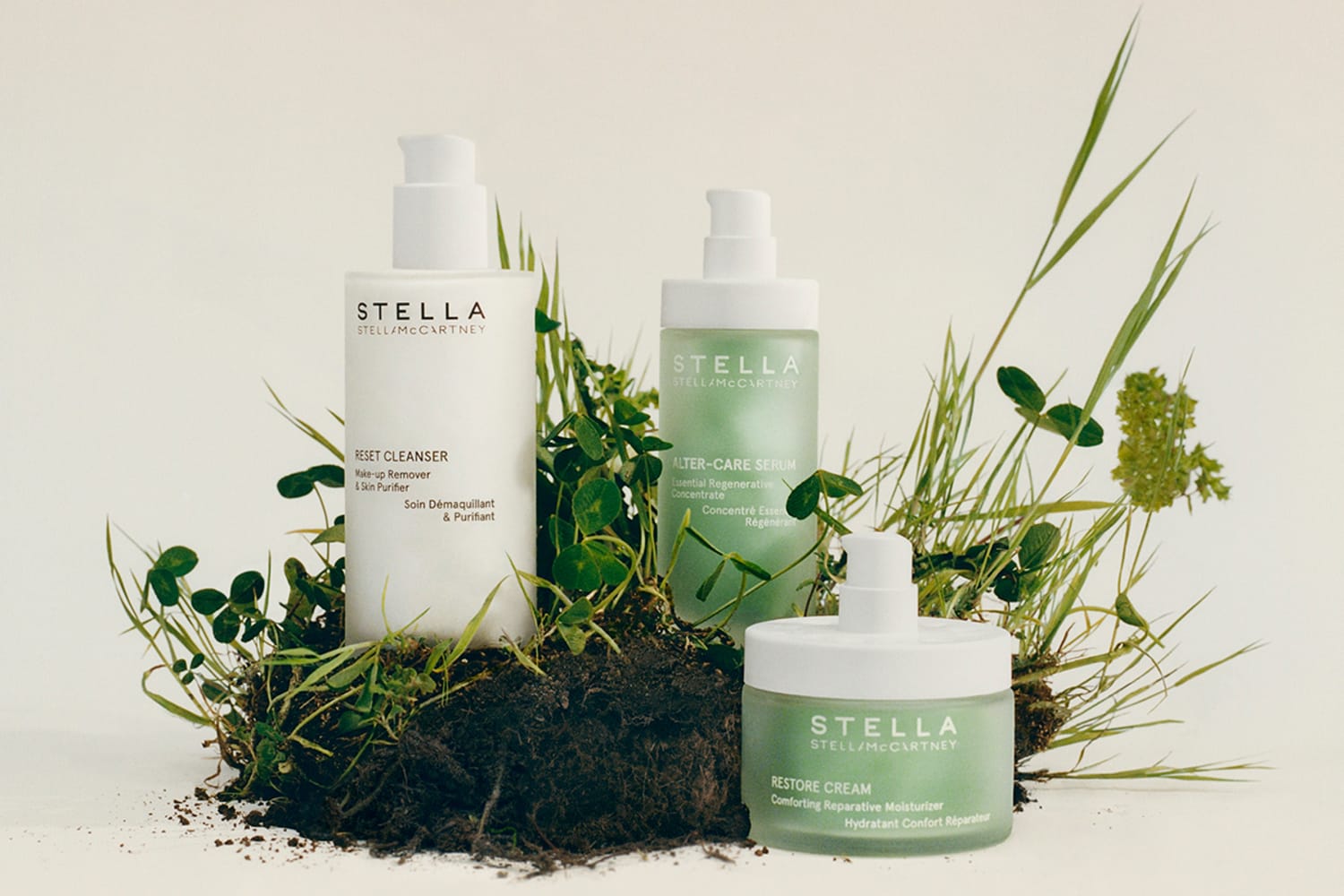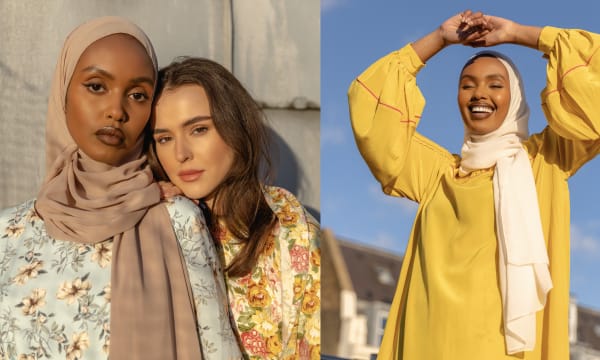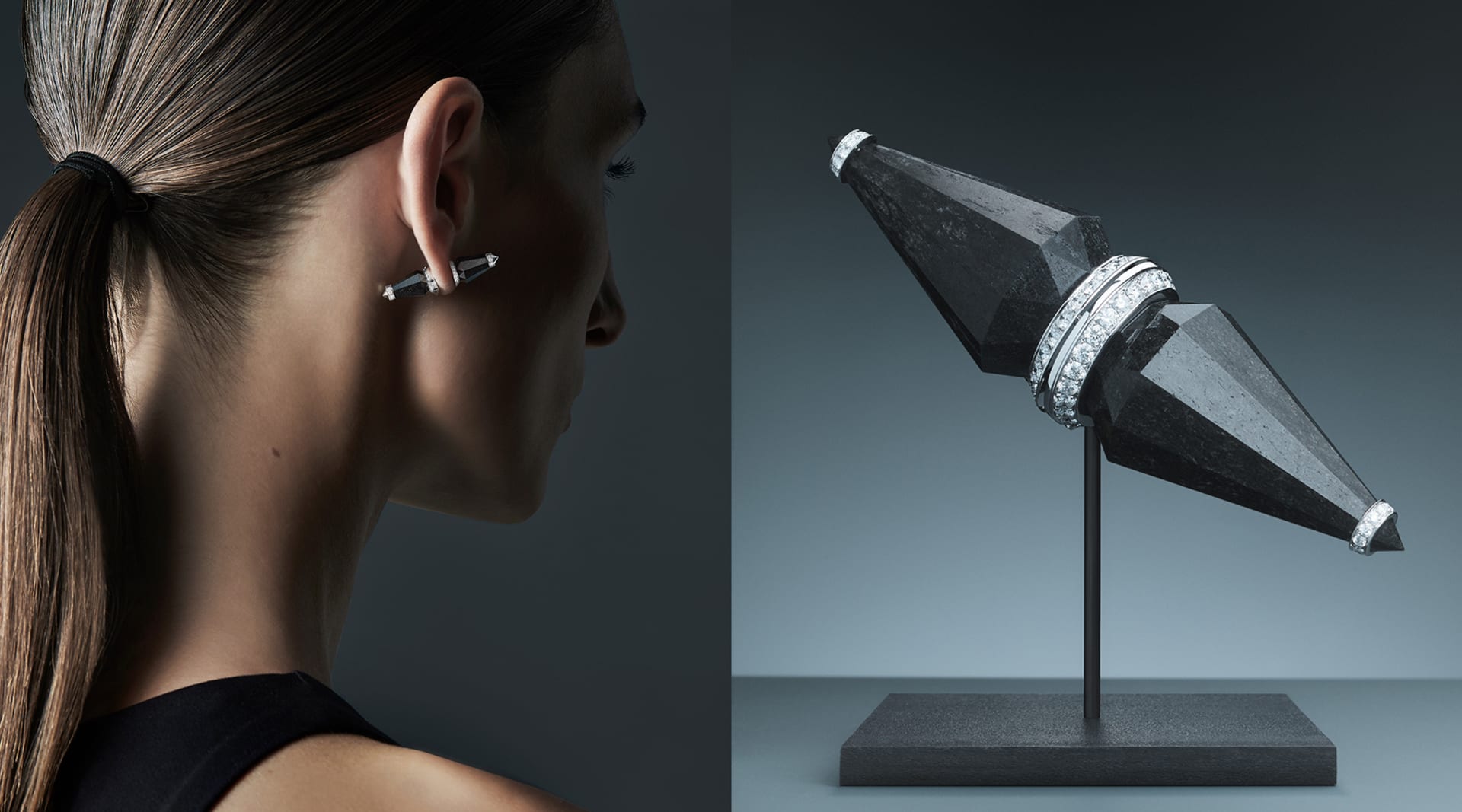High-end luxury brands are reinventing their product and production lines to better align with consumer calls for sustainability and responsibility.
How is luxury aligning with consumer desire for sustainability and accountability?
Prada
Prada launched its first fine jewelry collection made of recycled gold in October. The genderless collection features almost 50 pieces made from the recycled gold and traceable pavé diamonds, each of which comes with an authentication card that can be scanned using Aura Consortium Blockchain technology for the product’s full origin verification. “Transparency is the benchmark of sustainability,” Prada jewelry director Timothy Iwata told Vogue.

Boucheron
Kering-owned Boucheron’s new jewelry collection is made using asbestos. Cofalit, a material created from asbestos, is a glimmering stone that resembles a dark onyx that is safe to use and wear. Released in September, the Jack de Boucheron Ultime collection is a first for the brand as it explores new modes of sustainability in its jewelry production.
Burberry
In August, Burberry’s net zero emissions goals were approved by the Science Based Targets initiative (SBTi). As the first luxury fashion brand to receive the gold standard emissions goals approval, its targets themselves are also a first for the industry, and the brand is already carbon-neutral across its global operations. Burberry aims to become climate positive by 2040.
Caroline Laurie, VP of corporate responsibility, told Vogue: “We continue to challenge ourselves to drive measurement, improvement and transparency across our operations, and we are committed to continue working with our suppliers and partners to accelerate the adoption of more sustainable practices.”
Goodwill
Gucci, Prada, and several other luxury brands are now available on Goodwill’s online marketplace, GoodwillFinds. Not only is the move introducing the established charity brand to digital retail: it’s securing its place in the luxury resale market. According to Bloomberg, the site already has high-end accessories listed: a red patent leather Gucci bag, black suede Prada shoes, and a Burberry sapphire crystal Swiss watch.
“Goodwill is not just the OG of thrifting, it’s also one of the pioneers of the circular economy,” GoodwillFinds CEO Matthew Kaness said in an interview with Bloomberg. “Last year, 3 billion pounds of items were diverted from landfills with the resale of donations made at Goodwill’s 3,300 stores across US and Canada.”

Stella McCartney
Stella McCartney began selling a fully-recyclable and refillable skincare line in September. In partnership with LVMH’s Beauty Division, McCartney deems the Stella skincare line a “conscious luxury” skincare brand that "supports caring for ourselves and Mother Earth in perfect harmony," according to a press release. All three products: a cleanser, a serum, and a moisturizer, are refillable, vegan, and cruelty-free. The brand will also donate 1% of its net sales to NGO Wetlands International, and organization that protects Scotland’s vital natural petlands, which happen to be the largest carbon store on Earth.
The Intelligence take
Luxury brands are leveling up their sustainable actions for a rising generation of consumers that shops with their values in mind. Recyclable packaging and offsetting carbon footprints isn't enough anymore: brands must reformulate and reimagine their products with meaningful change and transparent practices to appeal to conscious consumers.
Main image of the Jack de Boucheron Ultime jewelry, courtesy of Boucheron.
Please provide your contact information to continue.
Related Content


